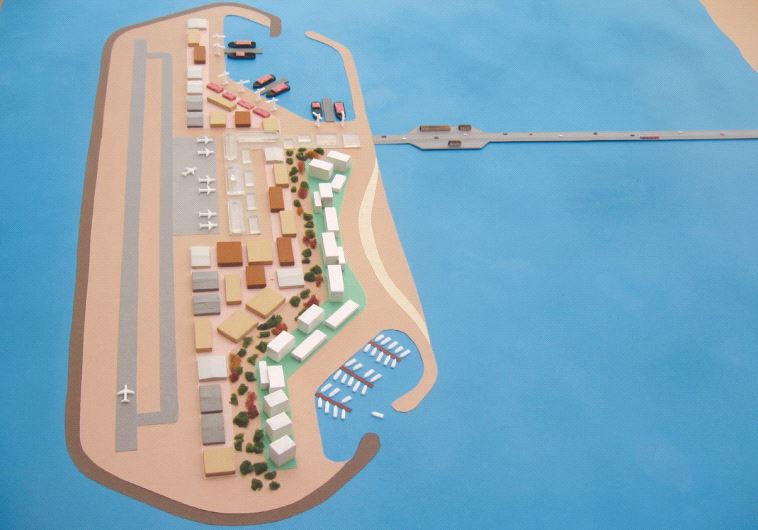Israel’s ‘Three-layered Regional Concept’
The ‘Three-layered Regional Concept is much more than “more of the same” and holds the potential for deep positive change.
 A MODEL of the proposed artificial island port that might be built off the Gaza shore.(photo credit: TRANSPORATION MINISTRY)
A MODEL of the proposed artificial island port that might be built off the Gaza shore.(photo credit: TRANSPORATION MINISTRY)